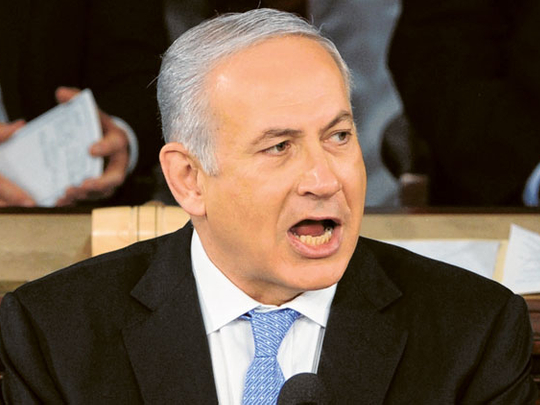
Now that negotiations with Iran over its nuclear programme are at an impasse, we are once again hearing that Israel, with or without US participation, is about to bomb Iran.
Last Sunday, Israel’s Deputy Foreign Minister Danny Ayalon called for an international declaration that the diplomatic efforts to halt Tehran’s enrichment of uranium “have failed.” Such a declaration, he went on to say, would make clear that “all options are on the table” for Israel, the United States, and Nato. Other news reports say that Israeli Prime Minister Benjamin Netanyahu has “all but made the decision” to attack Iran this fall.
What is now at stake is not only a threat of a major war in a volatile region, but more importantly for the long run, the future of the international peacemaking process itself.
Responding to the horrors of the Second World War, countries sought to build an international order that would ensure and maintain international peace and security. Signed on June 26, 1945, the United Nations Charter stated that all members shall refrain from “the threat or use of force against the territorial integrity or political independence of any state.”
At the same time, the Charter recognised as an exception the right of self-defence. Article 51 provides: “Nothing in the present Charter shall impair the inherent right of individual or collective self-defence if an armed attack [italics added] occurs against a Member of the United Nations, until the Security Council has taken measures necessary to maintain international peace and security.”
The Charter established peacemaking procedures to prevent international disputes from becoming armed conflicts, mandating that parties to disputes seek a solution by negotiation, mediation, or other peaceful means.
Under the strict wording of the Charter, neither Israel nor the United States would have a legal right to preemptively launch a military strike on Iran. Moreover, if the US were to participate in such an attack without the approval of Congress, the president would violate US law as well as the UN Charter, which by treaty became part of US law.
‘Bush doctrine’
Because international law is mostly defined by international practice, the so-called “Bush Doctrine” of pre-emptive attack has seriously compromised Article 51. Nothing in the UN Charter would justify a pre-emptive strike, yet George W. Bush proceeded with the 2003 “shock and awe” strikes on Iraq, based on faulty intelligence reports that Saddam Hussain had weapons of mass destruction.
Recall Colin Powell’s speech to the UN on February 5, 2003 in which he insisted that Iraq was harbouring weapons of mass destruction, and implied that weapons capacity alone was enough to justify a pre-emptive strike. In the wake of 9/11, the Iraq war planners simply disregarded Article 51 as outmoded.
No wonder that Israeli planners think they have a legal carte blanche to bomb the Iranians, even if their rationale for attack rests only on an assumption that Iran is developing a nuclear bomb capacity and does intend to use it against Israel.
A key question is whether the strict “armed attack” limitation on national self-defence will remain as an effective check on governments. More fundamental is whether the UN Charter will endure as a viable mechanism for the maintenance of international peace.
To put these questions in practical terms: Do we want a world in which leaders are free to launch military attacks on other countries simply on an assumption of hostile intent and military capacity? Are we content with a lexicon that clothes aggression with the mantle of “pre-emptive self-defence?”
It is time for President Obama to say “No” to the Israelis — no more military aid (now amounting to more than $3 billion (Dh11.02 billion) a year) if they launch a military strike on Iran. He should publicly and definitively rule out the possibility of US participation in a military attack on Iran.
L. Michael Hager is co-founder and former director-general of the International Development Law Organisation in Rome, Italy.









